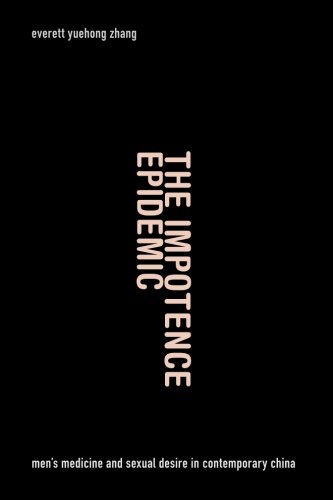
Since the 1990s China has seen a dramatic increase in the number of men seeking treatment for impotence. Everett Yuehong Zhang argues in The Impotence Epidemic that this trend represents changing public attitudes about sexuality in an increasingly globalized China. In this ethnography he shifts discussions of impotence as a purely neurovascular phenomenon to a social one. Zhang contextualizes impotence within the social changes brought by recent economic reform and through the production of various desires in post-Maoist China. Based on interviews with 350 men and their partners from Beijing and Chengdu, and concerned with de-mystifying and de-stigmatizing impotence, Zhang suggests that the impotence epidemic represents not just trauma and suffering, but also a contagion of individualized desire and an affirmation for living a full life. For Zhang, studying male impotence in China is one way to comprehend the unique experience of Chinese modernity.
